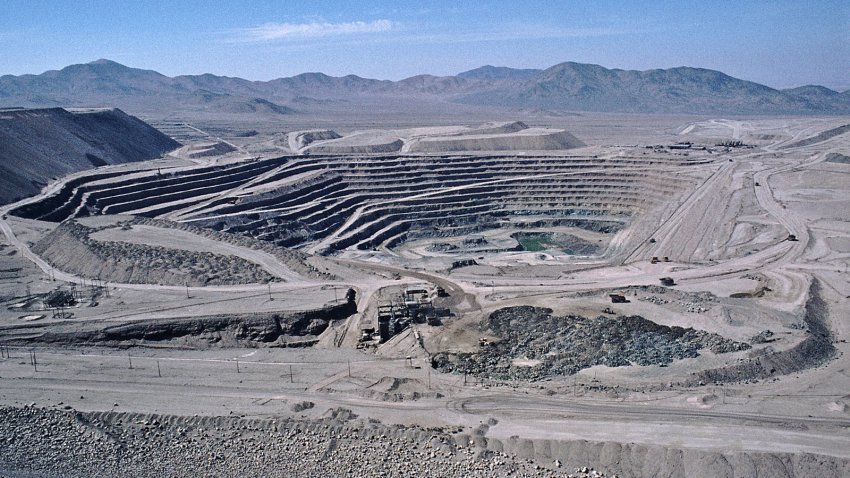All the moves of Indonesia and Zimbabwe to limit the export of metals

Indonesia has imposed an export ban on bauxite, a mineral essential for the production of aluminium. Zimbabwe has done the same but with lithium for batteries. That's what the two big raw material suppliers want to achieve
On Wednesday, Indonesian President Joko Widodo announced an export ban on bauxite, a mineral needed to produce aluminum of which Indonesia is the fifth largest supplier in the world.
The ban will go into effect next June.
THE GOAL OF INDONESIA
The Indonesian government, Widodo explained, "is continuously committed to building sovereignty in our natural resource sector and adding value to national [products], in order to open as many jobs as possible, increase [revenue] in foreign exchange and create uniform economic growth”.
Jakarta's goal is to keep the bauxite at home so as to stimulate the growth of the domestic refining industry of the raw material. In this regard, the Minister of Economic Affairs Airlangga Hartarto said that Indonesian raw ore is exported to China and Australia, from which Indonesia then buys processed products.
NEW ALUMINA FACTORIES
There are currently four refineries in Indonesia using bauxite as a feedstock for the production of alumina , an intermediate product in the aluminum obtaining process: their combined production capacity amounts to 4.3 million tonnes.
Hatarto said preparations were underway to build more factories, which will more than double current capacity.
INCREASE IN THE VALUE OF EXPORTS
According to President Widodo, the export ban will allow the value of Indonesian exports of bauxite to grow from the current 21 trillion rupees (about 1.3 billion dollars) to at least 62 trillion.
According to data from the US Geological Survey, an agency of the US government, in 2020 Indonesia was the fifth largest producer of bauxite in the world, of which it has the sixth largest reserves on the planet.
THE PREVIOUS OF 2014-2017
It is not the first time, recalls Nikkei Asia , that Indonesia has blocked bauxite exports. It had already imposed restrictions in 2014 – "causing a significant drop in shipments", writes the newspaper -, only easing them in 2017.
THE DAMAGE TO CHINA
Jakarta's ban on bauxite will especially damage China, which in 2014 (the year of the first ban) was by far the largest buyer: 99 percent of Indonesian metal loads ended up in China. Since then, Beijing has reduced the share of dependence, but despite the diversification it still continues to buy large quantities of the mineral from Indonesia: in 2021 almost a fifth of Chinese imports of raw materials related to aluminum came from this country.
China is clearly the largest producer of aluminum in the world.
THE IMPACT ON ALUMINUM PRICES
The Indonesian government's announcement had little impact on aluminum prices: three-month contracts on the London Metal Exchange , the leading metal futures exchange, rose 0.6 percent to 2386.50 dollars per ton.
NOT ONLY BAUXITE : THE NICKEL BANS OF INDONESIA
In 2014, and for three years, Indonesia also banned the export of nickel, a metal – it is the largest producer in the world – used for electric car batteries and stainless steel.
– Read also: Indonesia wants to create a cartel of nickel producers
The ban had the effect of spurring Chinese investment in Indonesia's metalworking industry, making the country a major producer of stainless steel.
Jakarta had imposed another ban on the export of nickel, which came into force in January 2020, but which was contested by the European Union before the World Trade Organization (WTO). Brussels deemed it harmful to the EU steel industry, and eventually the institution ruled that the Indonesian restrictions were not justified.
Jokowi said Indonesia would appeal the WTO ruling. And that the nickel bloc has been successful in boosting the value of related Indonesian exports, from $1.1 billion in 2014 to $20.9 billion in 2021.
Jakarta also issued temporary export bans this year on two other staple commodities, coal and palm oil, disrupting both markets.
ZIMBABWE'S MOVE
On December 20, the Minister of Mines of Zimbabwe in southern Africa announced an export ban on raw lithium, a metal used in electric vehicle batteries.
Mineral exports are worth about 60 percent of Zimbabwe's export-related earnings; the mining sector, on the other hand, contributes 16 percent to gross domestic product.
As in the case of Jakarta, Harare also aims to exploit the raw materials at its disposal to stimulate the growth, on the national territory, of a complete industrial chain, which is not limited to the extraction of lithium but also includes its refining and production of batteries, the two activities with the highest added value.
"If we continue to export raw lithium we will go nowhere," said Deputy Mines Minister Polite Kambamura. “We did it [the lithium export restrictions, ed ] in good faith, for the good of the industry”.
Zimbabwe has the largest lithium deposits in all of Africa. The Bikita mine, the most important in the country, contains reserves of 10.8 million tons.
This is a machine translation from Italian language of a post published on Start Magazine at the URL https://www.startmag.it/energia/indonesia-zimbabwe-divieti-esportazione-bauxite-litio/ on Thu, 22 Dec 2022 09:53:06 +0000.
